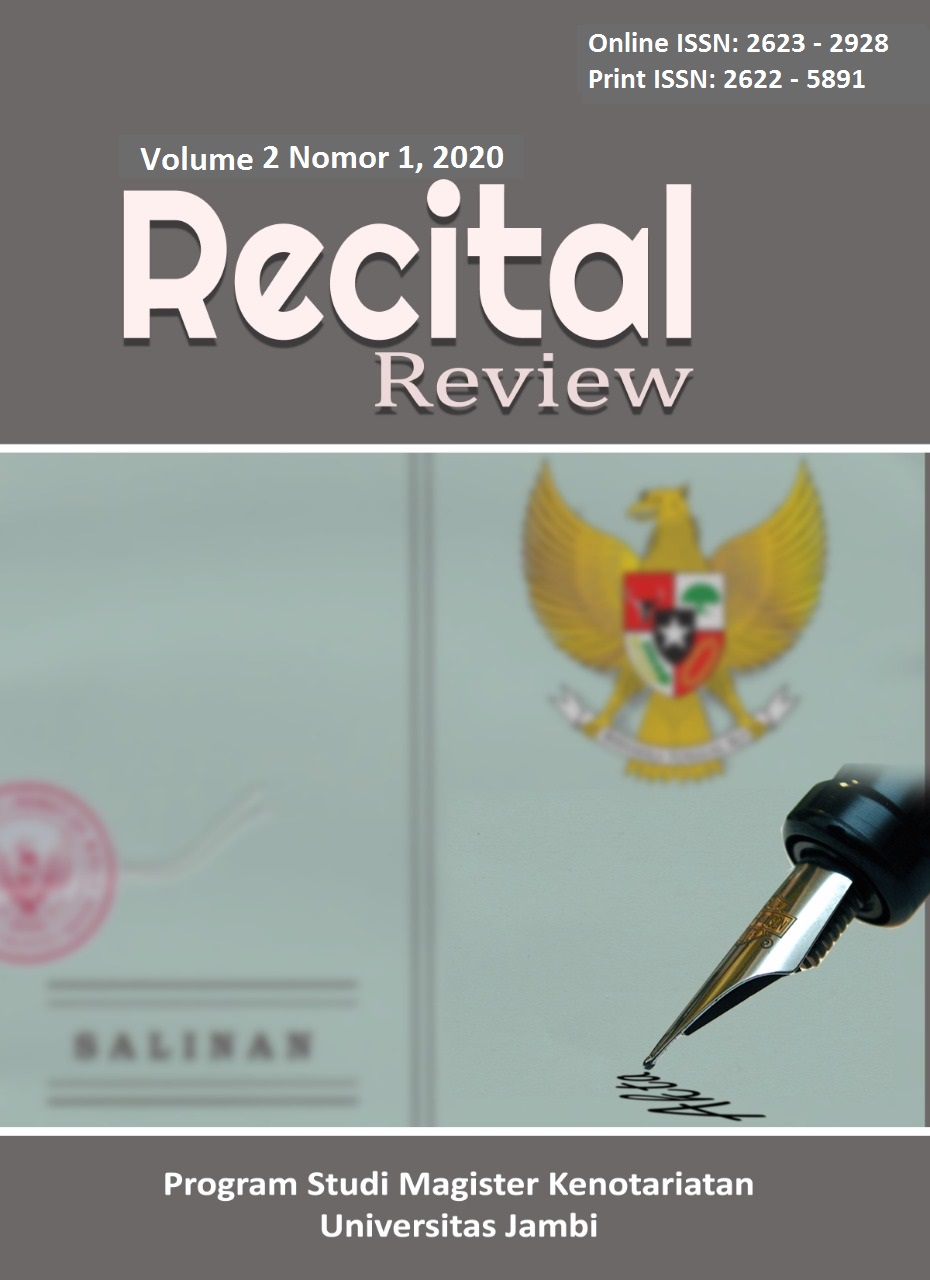Perlindungan Hukum Penerima Protokol Werda Notaris Dan Kewajiban Menyimpan Rahasia Jabatan
Abstract
This study aims to: 1) to find out and analyze the form of legal protection against the responsibility of notary recipients of protocols by notaries in relation to the obligation to keep secret positions according to the notary's office rules, 2) to know and analyze the form of legal responsibility of notary recipients of the notary in mandatory relation keep position secrets according to the notary office rules. The legal issue or legal issue to be examined in this paper is the existence of a vague legal rule in Article 4 paragraph (2) of Law Number 30 of 2004 concerning Notary Position (hereinafter simply referred to as UUJN), Article 16 paragraph (1) letter f Law No. 2 of 2014 concerning Amendments to Law Number 30 Year 2004 concerning Notary Position (hereinafter sufficiently referred to as UUJN-P), Article 54 paragraph (1) UUJN-P, and Article 66 UUJN-P which regulates protection the law regarding the notary's responsibility in carrying out his position is not in the capacity as the recipient of the protocol by the notary and the legal responsibility of the notary recipient of the protocol. Furthermore, there are legal rules that are vague in Article 65 of the UUJN-P which regulates the boundaries of accountability or responsibility of the notary and the vacuum of criminal and civil law as a form of legal protection against the responsibility of notary recipients of protocols notary in relation to having to keep office secrets according to office rules Notary Public. The problems that will be examined in this study are : 1) how the form of legal protection against the responsibility of notary recipients of protocols is notary connection must keep the secret of position according to the notary's office rules ?, 2) how the form of legal responsibility notary recipient protocol notary in connection must keep position secret according to the notary's office rules ?. The type of research in this study is normative juridical research. The approach used in this study is the statute approach, the conceptual approach. Legal materials include primary, secondary and tertiary legal materials. Analysis of legal material in this study was conducted by inventorying norms and rules relating to the focus of the study, then systematizing these norms, to then be interpreted according to the subject matter of the study.
Downloads
Downloads
Published
Versions
- 2020-01-31 (1)
- 2020-01-31 (1)
How to Cite
Issue
Section
License
The Authors(s) retain copyrights of the Article published on Recital Review. However, before publishing, it is required to obtain written confirmation from Author(s) in order to ensure the originality (Author Statement of Originality). The statement is to be signed by at least one of the authors who have obtained the assent of the co-author(s) where applicable. This work licensed under a Creative Commons Attribution 4.0 International License). All writings published in this journal are personal views of the authors and do not represent the views of this journal and the author's affiliated institutions.Â






